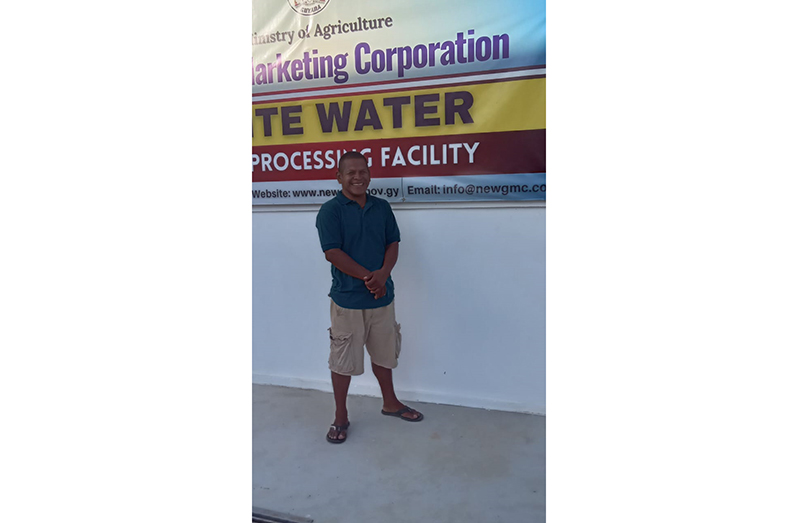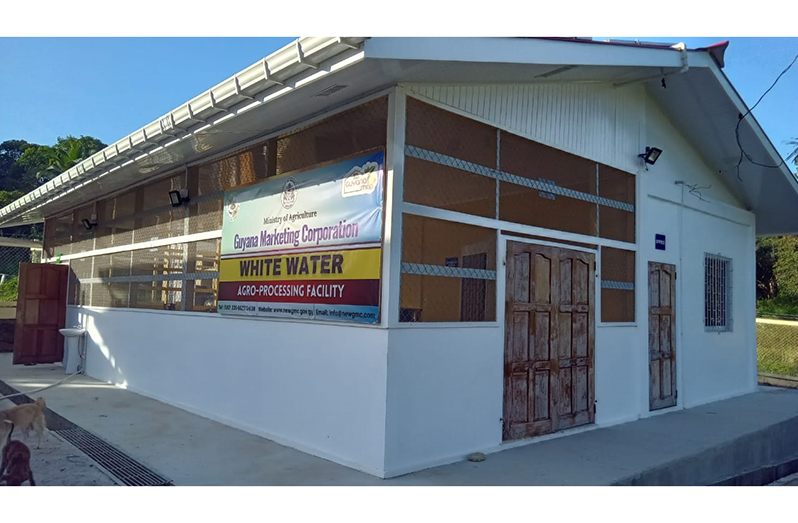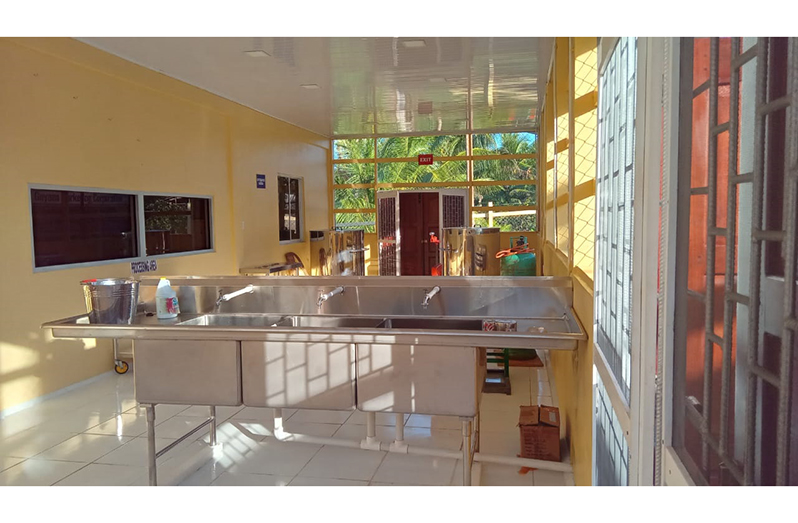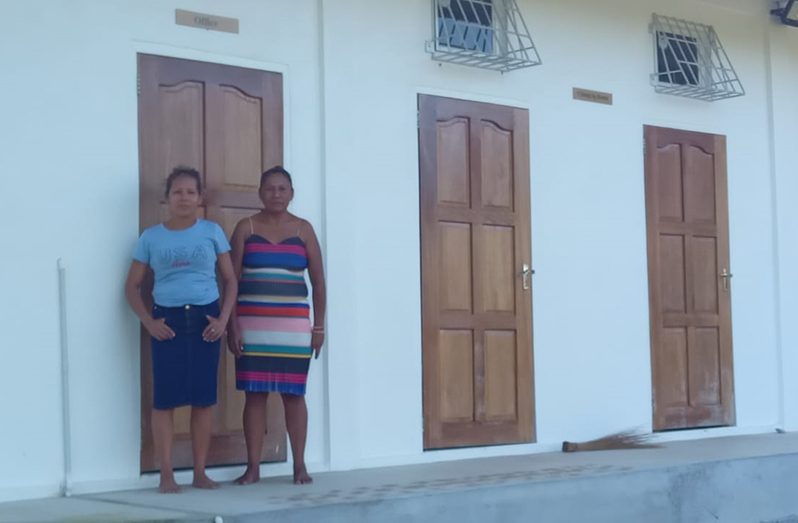THE livelihood of 16 locals of the Mabaruma sub-region, Whitewater, Region One (Barima-Waini) has significantly increased due to the government’s intervention of a spanking new $25M agro-processing facility, which opened about five months ago.
Whitewater is a remote village located in Region One and is accessible by land, air and sea. It comprises eight satellite villages with a population of 3,000 and 400 households, mostly Amerindians.
Deon Adams, Toshao of Whitewater Village, said they are versed in processing cassava cassareep, tuma water and passion fruit juices. He told the Pepperpot Magazine that their products are being marketed and sold right in the community presently, but they have plans to expand and have them shipped to other parts of the country for sale.
Adams stated that the government, via the Guyana Marketing Corporation (GMC) assisted them in getting started to ensure they were approved of all standards, including licence, labelling, packaging and certified as wholesome products.
With the operation of the agro-processing facility, 16 residents are utilising the plant to process their produce to make local products to retail, thus providing stable income to their homes.

The Toshao explained that the main source of income for the locals is farming, and they depend heavily on a good harvest to earn, as many other jobs are not available in the community. Among the crops farmed there are sweet and bitter cassava, ginger, yam, potatoes and various cash crops. Most of the produce is being sold at Kumaka Market, strategically located at the waterfront area or in the community on a small scale.
Adams told the Pepperpot Magazine that the agro-processing facility is located in Central Whitewater and is the brainchild of residents to earn and produce quality local products.
“The people of Whitewater are talented and possess many skills, including making things and with their produce, they can finally put their skills to use to make cassareep, cassava bread, tuma water and passion fruit juices to earn right in the community at the agro-processing plant,” Adams said.

Toshao Adams explained that the people would like a bit more assistance in boosting their capabilities to farm with seeds, drugs, equipment and grants. He explained that most people are farming on a small scale, and, at times, it is mostly seasonal crops and getting a good harvest isn’t always possible due to many challenges.
“The people have what it takes to produce, but they need a little bit of help along the way to make a start, and that would really be good if they can benefit from loans or grants just for farming purposes,” he reasoned.
With the establishment of agro-processing facilities across the country, Guyanese are being encouraged to grow and produce what they consume daily. This prompted the establishment of the food-processing facility.

When it is operationalised, farmers can advance their operations to a more commercialised value-added production and achieve sustainable economic growth through agro-processing.
This will ensure that products, including cassava bread, farine, and cassareep, will have easier access to markets.
Due to the large expenditures made in these sectors, the export revenue from agriculture-processed goods brought in $897 million for the nation, with a 61 per cent rise in export volume from 1,071 metric tonnes in 2021 to 1,724 metric tonnes in 2022.



.jpg)










